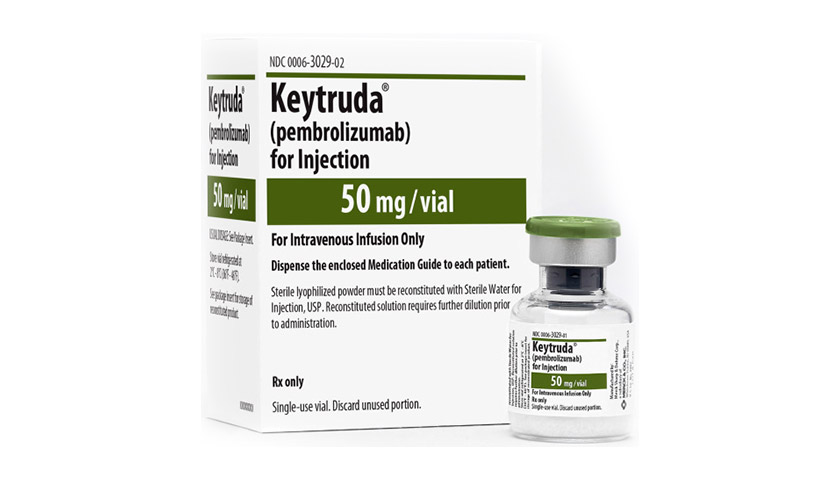FDA starts speedy review of Keytruda for adjuvant kidney cancer

Merck & Co is looking at a decision from the FDA in December on its application to market Keytruda as a post-surgery treatment for people with kidney cancer, after a priority review.
The drugmaker – known as MSD outside the US and Canada – is seeking approval of Keytruda (pembrolizumab) as an adjuvant treatment for renal cell carcinoma (RCC) patients who have undergone surgery for the cancer and are at risk of relapse.
The US regulator is reviewing the results of the KEYNOTE-564 trial, which involved patients who had an operation to remove the kidney affected by the tumour, and in some cases surgical removal of lesions that had spread to other parts of the body, in an attempt to cure the cancer.
Results from the study were presented at this year's ASCO meeting, with Keytruda becoming the first drug in the PD-1/PD-L1 immunotherapy class to show a benefit as adjuvant treatment of RCC, the most common type of kidney cancer.
The main outcome measure was disease-free survival, which came in at almost 86% for the Keytruda group versus 76% for the placebo group at 12 months, and 77% versus 68% respectively after two years.
Overall, adjuvant Keytruda reduced the risk for recurrence or death by a statistically significant 32% versus control in the 994-patient study. Overall survival rates are also being tracked, but that data isn't yet mature although it was trending in favour of Merck's drug at ASCO.
Keytruda is already approved for use in combination with Pfizer's tyrosine kinase inhibitor Inlyta (axitinib) for the first-line treatment of patients with advanced RCC – as is rival drug Bavencio (avelumab) from Merck KGaA/Pfizer – but approval in the adjuvant setting would move it earlier in the treatment pathway.
That is a key strategy for Merck as well as other cancer immunotherapy companies as it expands the pool of eligible patients, although the strategy does come with some concerns as well. In particular, a key question is whether the drugs will work as effectively later one if the cancer returns.
"The acceptance of our application demonstrates the progress we are making in earlier lines and earlier stages of certain cancers across our oncology portfolio," said Dr Scot Ebbinghaus, Merck's head of clinical research.
Merck has previously picked up FDA approvals in the adjuvant or neoadjuvant (pre-surgery) setting in triple-negative breast cancer and melanoma with lymph node involvement.
The FDA meanwhile has also started a standard review of Keytruda as a second-line monotherapy for advanced endometrial carcinoma with microsatellite instability-high (MSI-H) or mismatch repair deficient (dMMR) mutations, in patients who aren't eligible for surgery or radiotherapy.
The regulator is due to deliver its decision on that application next March.












